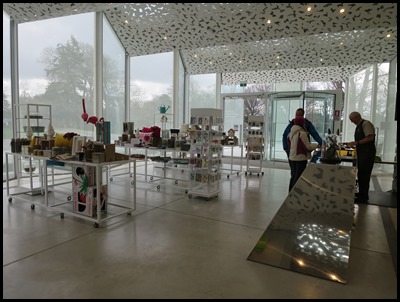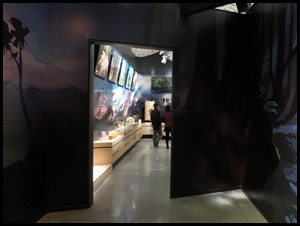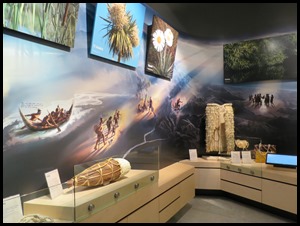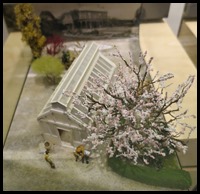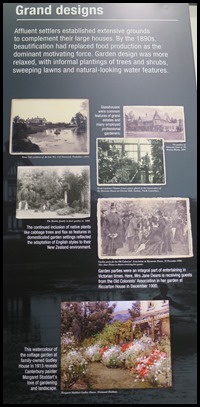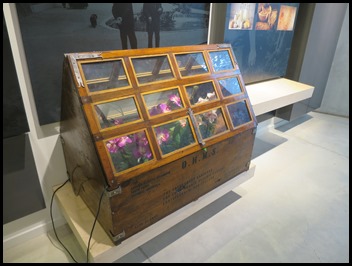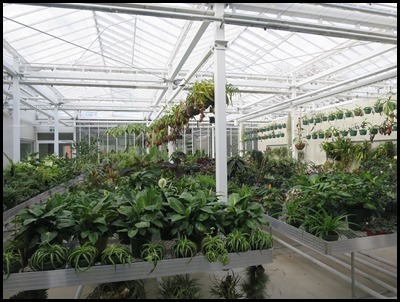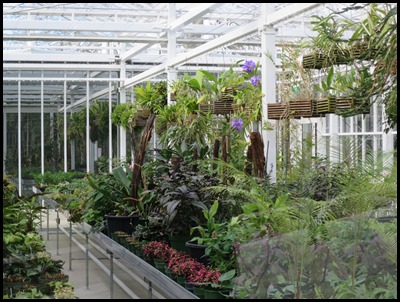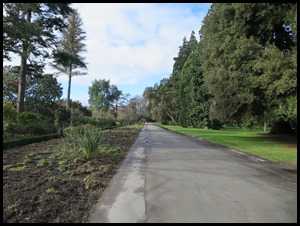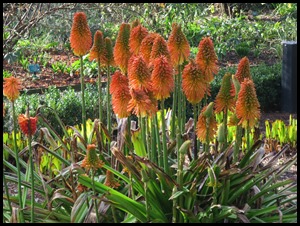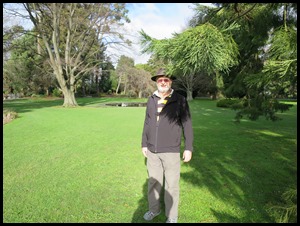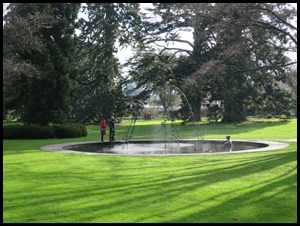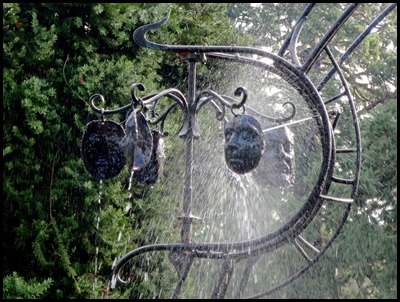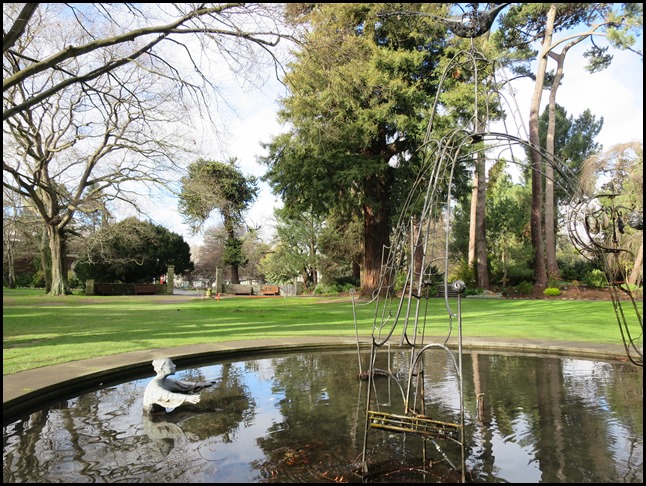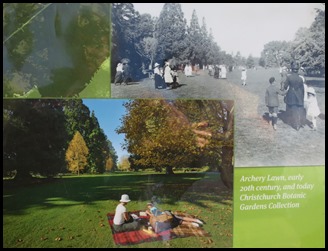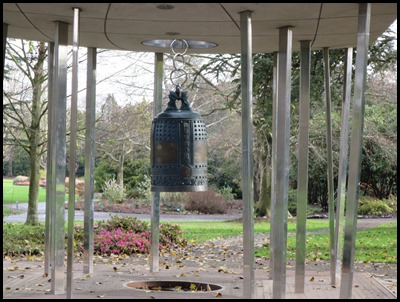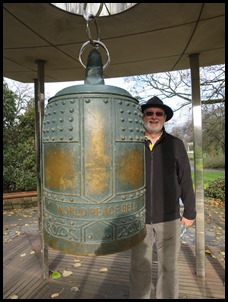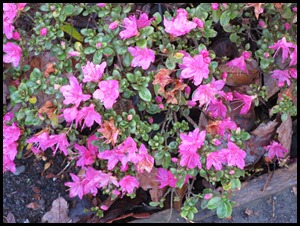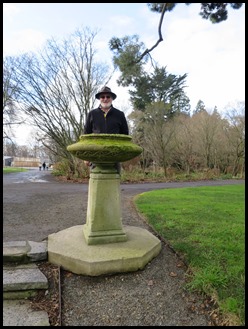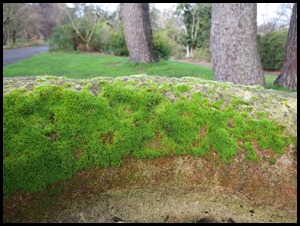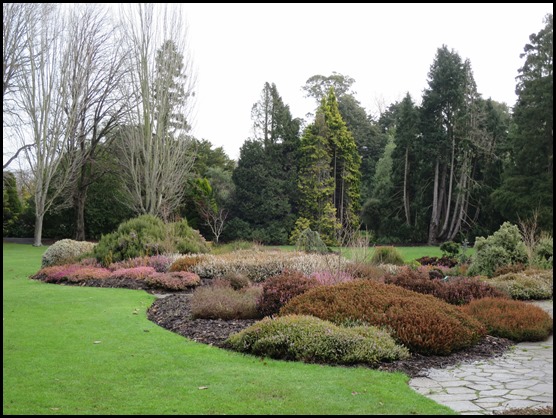Christchurch Botanic Garden

|
Christchurch Botanic Garden 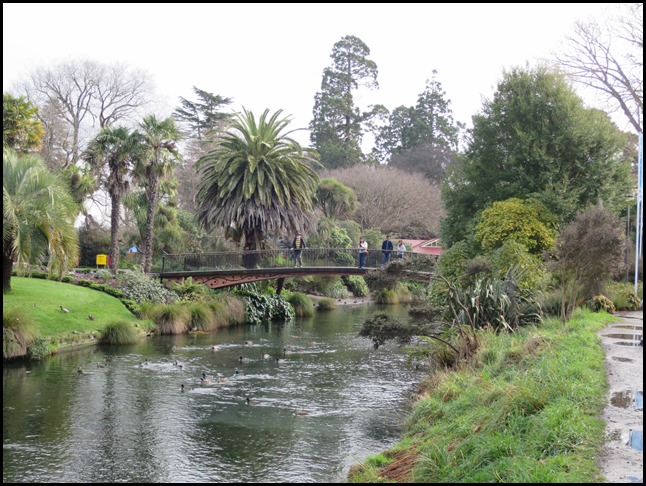 The Gardens sprawl over an area of twenty one hectares
and lie adjacent to the loop of the
Avon
River next to Hagley
Park.
 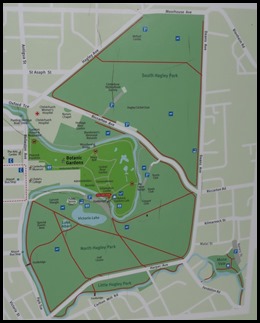 Christchurch Botanic Gardens, near the city centre were founded in 1863, when an English oak was planted on the 9th of July 1863 to commemorate the solemnisation of marriage between Prince Albert and Princess Alexandra of Denmark. Open every day at seven and are free to enjoy, the gardens welcome more than 1.1 million visitors each year, making them one of the city's most popular attractions. Popular with locals, who see the garden as one of the place they ran to for shelter after the earthquake, a symbol of the city and a place to enjoy now.
There was an exhibition telling the story of how gardening came to New Zealand.
This is a Paki or rain cape. It has a backing of shredded harakeke with outer layers of curled twills and flat tags made from ti kouka. Felt-backed tikumu – mountain daisy leaves were often added for extra protection for those crossing the Southern Alps.
Gardens over the years
The history of gardens over the years.
The Queen and Prince Philip visited the gardens in 1954. An arrival by ship.
Our last stop before heading out was to look through to the nursery stock, in a fully automated, ‘state of the art’ greenhouse.
We stepped out of the Visitor Building and caught our first glimpse.
By the back entrance to the building, through an open gate – wow, a ’one careful owner’.
‘Red hot poker’ provided colour in the shrub bed. The sun came out as we headed to a pond at the east end of the Archery Lawn.
Bear casually pulled the lever to make the water feature work. Called Regret – an abstract fountain sculptured by Sam Mahon.
Regret, a spidery tower, is intended to reflect the ‘messy reality’ of human life. Over ten metres high and made from steel rod of various thicknesses, the sculpture rises up out of the small pond on the Archery Lawn. As well as a wind-turned bird on the top of the structure and revolving masks halfway down, there is also a partially submerged figure reclining in the water.
The Archery Lawn.
The Peace Bell
Blooms along the way. A matching pair of Oamaru stone tazze on pedestals donated by James Jamieson. Originally gifted for the newly formed Rosary in August 1916, the tazze were relocated to the current location in 1935. One was ‘missing in action’, the other only had moss as decoration.
The Rock Garden contains some plants that remain in flower throughout the year.
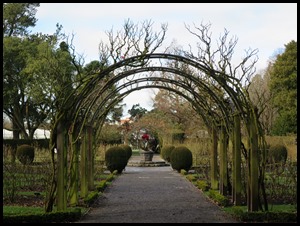 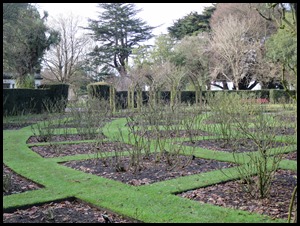 The Rose Garden has more than
two hundred and fifty varieties of roses.
The Botanic Gardens rode out the earthquakes well. On the 22nd of February 2011 during the fatal 6.3 earthquake many people took refuge in the open spaces in the Botanic Gardens. Grounds, irrigation systems and garden paths were damaged and lakes were drained as impermeable bases were cracked. Staff have worked tirelessly to bring the gardens back to what they were and although several buildings are still damaged the gardens remain as memorable and serene as ever.
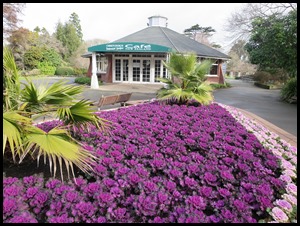  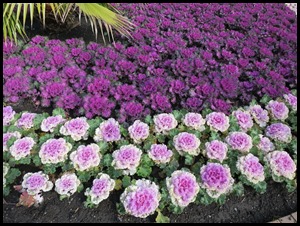
ALL IN ALL A LOVELY WAY TO SPEND A FEW HOURS VERY PRETTY
|
